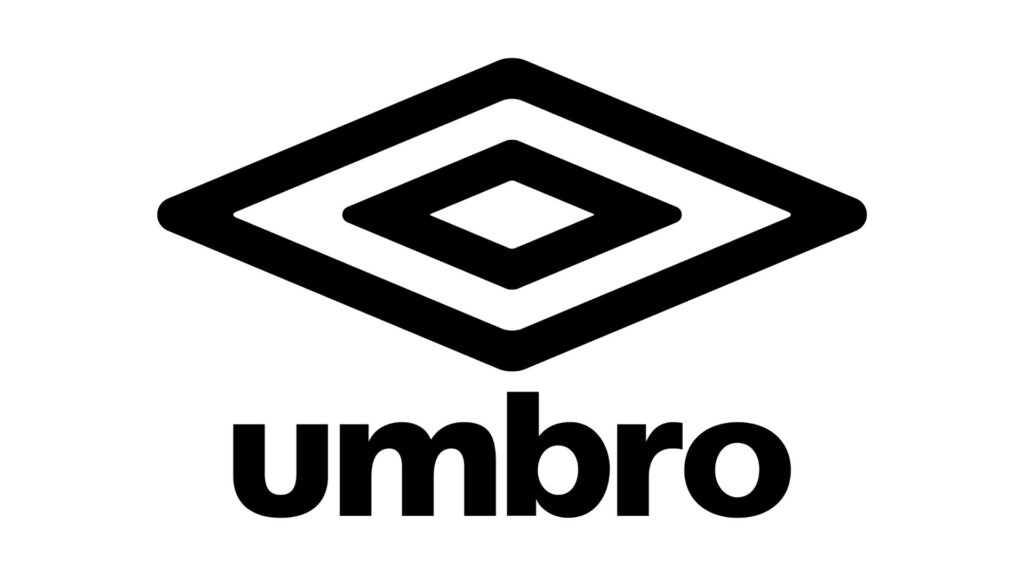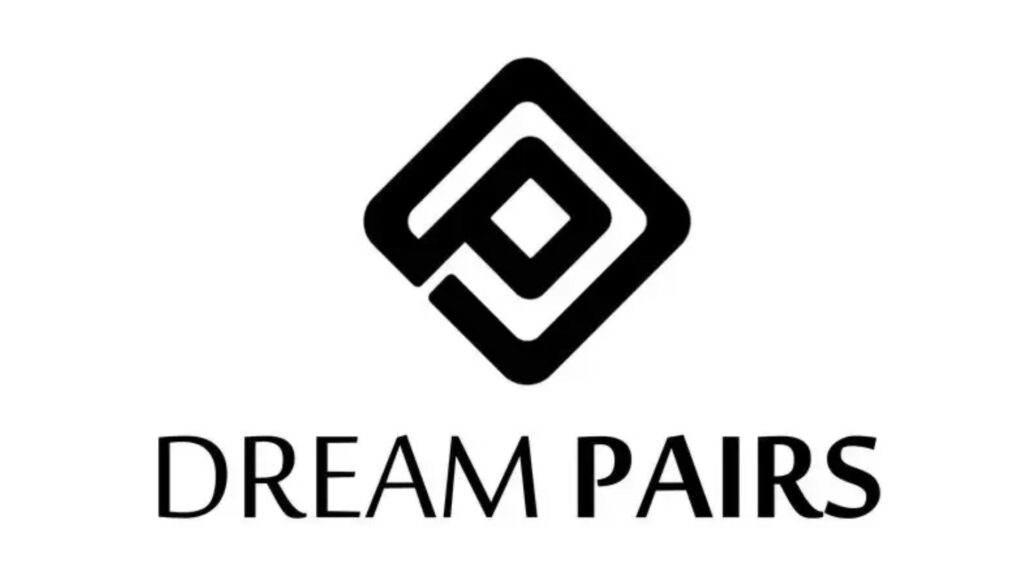Many businesses rely on a logo to distinguish their goods and services. When displayed on the goods themselves, a logo is often the first and most immediate way of introducing a brand to consumers. Logos bring with them their own risks and business owners need to make sure that they design and use a logo that is unique to them, whether in conjunction with a brand name or not.
These dangers have been illustrated in a recent case involving two logos owned by sportswear brands, ‘Umbro’ and ‘Dream Pairs’.
Umbro has been using its double diamond shaped logo, shown below since 1973 for sportswear and since 1987 for football boots. The diamond logo is often depicted on the side of footwear such as football boots, without any accompanying text or branding.

Dream Pairs Europe Inc., registered their logo below in 2019 and had begun to use the shape device on its own without the accompanying ‘Dream Pairs’ text on women and children’s footwear, including on the side of trainers.

Umbro brought court proceedings against Dream Pairs, on the basis that the logos were too similar and were likely to cause confusion amongst consumers.
Initially, the court found in favour of Dream Pairs and held that the logos were not confusingly similar as the average consumer would see the Dream Pairs logo as a tilted square surrounding a letter ‘P’, which is not present in the Umbro mark. It also said that since the Dream Pairs shoes were sold online on Amazon, the purchaser would encounter accompanying text mentioning the brand name ‘Dream Pairs’ alongside the product images and so would not be confused by the logo alone.
Recently the Court of Appeal reversed this decision and found that there was a likelihood of confusion between the marks when used for footwear. The Appeal Court focused on the appearance and impact of the logos as a whole, without breaking them up into their separate components. The court pointed out that even if a consumer was not confused at the point of sale, eg when purchasing the goods on Amazon, there was still a high risk of confusion arising later on, when the goods were being worn and viewed from above or from an angle, on a person’s foot. For example, people could encounter the logos when viewing players on a football pitch or on shoes worn by a person in the street and would not know what the logos looked like when presented graphically, side by side. This ‘real-world’ perspective would foreshorten the Dream Pairs logo and make it look more like the Umbro logo.
This concept, known as ‘post-sale confusion’ could affect other potential consumers who may be confused into purchasing similar Dream Pairs products, thinking that it is this brand that the person they encountered was wearing when in fact they were wearing Umbro shoes. Or, a consumer could find it attractive to buy a cheaper product that could be ‘passed-off’ by them as a famous brand. In this way, the initial consumer will continue to sell or market the product as it is worn, causing potential confusion throughout the product’s lifetime. This makes sense as a designer or brand owner should be entitled to protection from counterfeiting and from third parties taking unfair advantage of its reputation or image throughout the lifetime of a product and not just at the point when it is sold.
Head of Trade Mark Ben Evans commented:
Over recent years brand owners have tended to focus on the word elements of their branding and perhaps allowed the visual aspects to get uncomfortably close to that of competitors. In reaching its conclusion in this case the Court of Appeal found that post-sale confusion (where the word element may not be featured) can still amount to an infringement, reinforcing the need for clearance searches on both word and logo aspects of any new brand.
Conclusion
This decision highlights the scope of protection awarded to brand owners and the advantages of having a unique logo as well as a brand name, that can endure for a long time after a product has been sold and continue to attract customers and increase a brand’s following.
As a business owner, you need to consider your choice of your logo carefully to ensure that as well as being simple and easily memorable, it is unique enough to serve its main function as a brand identifier. It should set your brand apart from competitors, rather than being too close for comfort and create more confusion. You should consult trade mark solicitors as well as branding agencies to check that a potential logo is free to use and will not infringe anyone else’s trade marks or copyright, before investing in a particular design.
This includes not only considering the logo on paper but also how it is to be used and viewed in a real-world context, on the goods and services themselves and after any sale has occurred, throughout the lifetime of the product.







